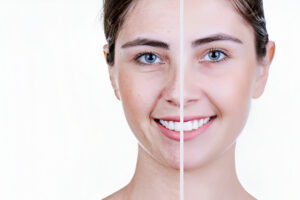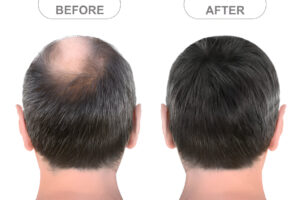Baking soda is more than just something you keep in the kitchen for baking cakes or freshening up the fridge. Many people now use it for personal care, especially for brushing their teeth. But can it really make your teeth Whiten ? The answer is yes — but only to a certain extent. Baking soda helps clean the surface of your teeth and can remove some stains. It is not a miracle cure, but it can be useful if used correctly. Let’s explore how baking soda works, how to use it, and what to keep in mind to keep your teeth healthy.
What Is Baking Soda?
Baking soda, also known as sodium bicarbonate, is a white, powdery substance. You’ll find it in most households because it has many uses — from baking to cleaning. It’s mildly abrasive, which means it can gently scrub away dirt or stains without causing harm when used properly. That’s why many people use it to brush their teeth. The grains of baking soda help remove surface stains left behind by coffee, tea, or wine. It’s also alkaline, which means it can reduce acidity in the mouth. This helps to balance oral pH levels and protect against harmful bacteria.
How Much Is Teeth Whitening for All Teeth?
Can Baking Soda Whiten Teeth?
Yes, baking soda can help whiten teeth, but it works best on surface stains. These are stains caused by food, drink, or smoking. Baking soda doesn’t bleach teeth like professional treatments offered at a polyclinic in Dubai might. Instead, it gently scrubs the surface, leaving teeth looking brighter. It also helps reduce plaque, making your teeth feel cleaner and smoother. The results are usually mild and take time. You won’t see a bright-white smile overnight, but regular use may show improvement. It’s a safe and natural option for people looking to avoid strong chemicals or costly dental treatments.
How to Use Baking Soda Safely
To make a simple baking soda paste, mix one teaspoon of baking soda with a few drops of water until it forms a thick paste. Use a soft-bristled toothbrush to apply the paste to your teeth. Brush in gentle, circular motions for about two minutes, making sure not to press too hard. After brushing, rinse your mouth and toothbrush well. You should only do this two or three times a week. Using baking soda too often or brushing too hard can wear down enamel over time. Be kind to your teeth and always brush with care when using this method.
How Long Does Teeth Whitening Last?
Benefits of Using Baking Soda
There are several reasons why people choose to use baking soda for teeth whitening. First, it’s affordable and found in almost every home. You don’t need to spend a lot of money to give it a try. Second, it’s natural, with no added chemicals or artificial flavours. It’s also effective at reducing bacteria and plaque, which can improve your overall oral health. And because it removes surface stains, your teeth may look brighter after just a few uses. Many people like that it’s fluoride-free, especially if they prefer a more natural approach to dental care or have sensitive reactions to fluoride.
What to Be Careful About
Even though baking soda is generally safe, there are still a few things to watch out for. Using it too often can damage tooth enamel, which protects the inside of your teeth. Once enamel wears away, it doesn’t grow back. Also, brushing too hard with baking soda can harm your gums. Avoid mixing baking soda with acidic things like lemon juice or vinegar. These acids can erode your enamel and make teeth more yellow over time. If you dislike the salty or chalky taste of baking soda, try adding a drop of peppermint oil to improve the flavour naturally.
Can yellow teeth become white again?
Should You Replace Your Toothpaste?
No, baking soda should not replace your regular toothpaste. That’s because it doesn’t contain fluoride, which helps prevent cavities and strengthens your enamel. Fluoride is very important for daily tooth protection. Instead of using baking soda every day, think of it as a gentle extra step in your routine. You can brush with regular toothpaste in the morning and try baking soda once or twice in the evening. Some people also use toothpaste that already contains baking soda, which gives them the benefits without having to mix anything themselves. Always follow up with a fluoride toothpaste for full protection.
Does Removing Wisdom Teeth Change Face Shape?
Final Thoughts
So, does baking soda whiten teeth? Yes — but only for surface stains. It can help remove marks left by coffee, tea, and tobacco, making your teeth look brighter. It’s affordable, easy to use, and safe when used carefully. However, don’t expect dramatic results overnight, and don’t rely on it as your only form of dental care. Baking soda should be used as part of a complete oral hygiene routine that includes brushing, flossing, and regular dental visits. Used two to three times per week, baking soda is a helpful, natural way to keep your smile looking fresh and clean.
Looking for Professional Teeth Whitening in Dubai? Visit YAH Polyclinic
While baking soda can help brighten your smile at home, it may not give you the dramatic results you’re looking for. For a deeper, more effective teeth whitening treatment, consider visiting YAH Polyclinic in Dubai. Our expert dental team offers safe, advanced whitening solutions tailored to your needs. Whether you want a quick refresh or long-lasting results, we’re here to help. Book your appointment today and take the first step towards a confident, radiant smile.
Frequently Asked Question
How long does it take to see results from baking soda teeth whitening?
Most people begin to see mild results after using baking soda two to three times per week for about 2–4 weeks. It won’t whiten teeth instantly, but with consistent use, it can help remove surface stains and brighten your smile gradually.
Can baking soda damage gums or enamel?
Yes, if used too often or brushed too hard, baking soda can wear down enamel and irritate gums. Always use it gently with a soft toothbrush, and limit usage to 2–3 times per week to protect your teeth and maintain healthy gums.
Is baking soda safe for sensitive teeth?
Baking soda is generally mild, but some people with sensitive teeth may feel discomfort. It doesn’t contain ingredients to soothe sensitivity, so it’s best to consult your dentist first and avoid overuse. Use gentle brushing and consider mixing it with your usual toothpaste.
Can I mix baking soda with toothpaste?
Yes, you can mix baking soda with regular toothpaste for extra whitening power. Simply add a small pinch to your brush or mix in a bowl. This gives you fluoride protection from toothpaste and gentle stain removal from baking soda — the best of both.
Does baking soda help with bad breath?
Baking soda helps neutralise mouth acids and reduce bacteria, which can cause bad breath. Its alkaline nature balances pH and leaves your mouth feeling fresher. However, for lasting freshness, combine it with regular brushing, flossing, and mouthwash for full oral care.





